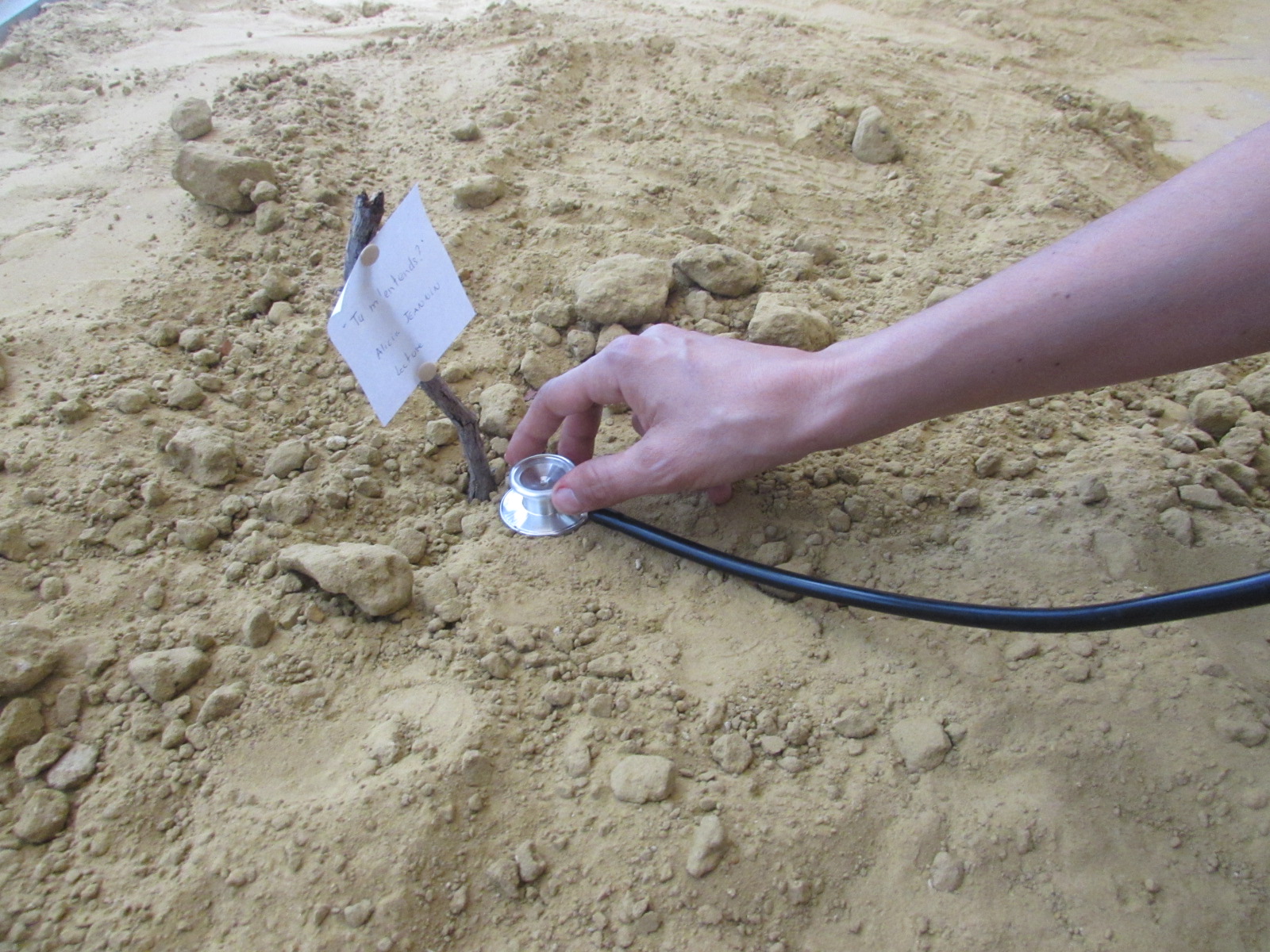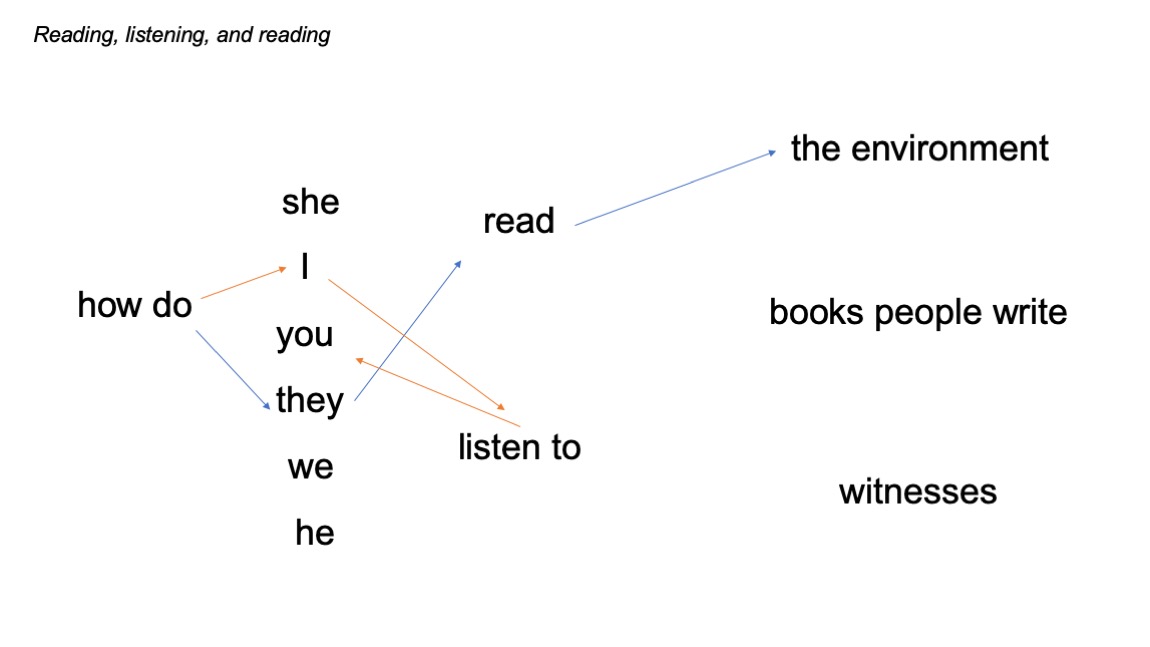

Together my PhD research project, I’m involved the following side adventures:


‘Reading, listening, and reading’ is an interactive installation in the form of a collective walk around sound devices. Conference participants hear the voices of fellow colleagues in environmental history (and neighbouring fields) speaking of their intimate practices of reading and listening. We will hear how they read a source, read a colleague’s book, actively listen to a witness, or read changes and conflicts in the landscape. The collection of voices is embedded in a mixed-media dispositif: voices, texts, images, and diagrams will serve to create a warm and sensorial space. The guiding thread is to explore how what we read in our environment is mediated by the variety of reading practices themselves. This installation is a proof of concept on how artistic practices can serve as methodologies in the ambition to re-think how we share our research beyond conventional academic formats.
This installation has been developed by Brussels-based duo: Alicia Jeannin (spoken-word audiovisual artist, performer and scenographer) and Max Bautista Perpinyà.
Our installation will premiere at the 4th World Congress of Environmental History in Oulu (Finland), 19-23 August 2024 https://wceh2024.com/.
reading, listening, and reading has been awarded the European Union’s Culture Moves Europe mobility grant.
